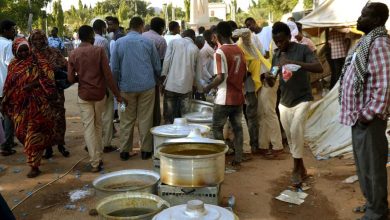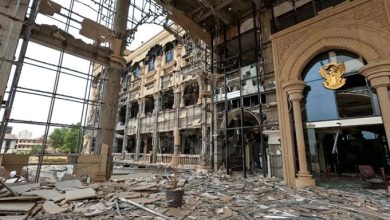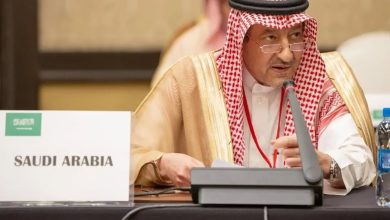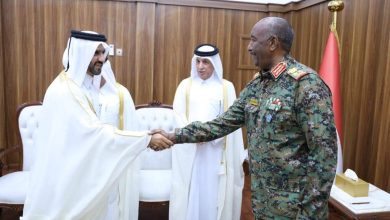Sudan Reconstruction: Requirements of the Stage
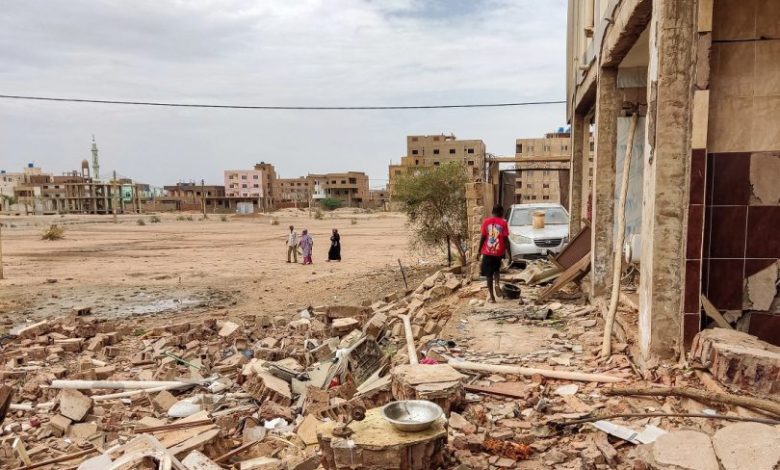
Report by Nahid Oshi
The war, even if it lasts for a long time, must at one point stop and weapons be laid down, whether through victory or mutual consent. During the nine-month war period, Sudan lost many aspects of development and urbanization, and its reconstruction requires intensifying efforts and directing huge amounts of resources towards the goal of rebuilding the country.
The economist, Dr. Haitham Muhammad Fathi presented a road map for the reconstruction of Sudan, noting that it starts from the banking sector, as there are great opportunities for the banking sector at the end of the war to improve the process of managing financial services.
He said that when the war is over and reconstruction and rehabilitation phase of the capital starts, there will be increased interests from customers for financial services.
Growth rates:
He added that Sudan cannot develop without large and diversified investments amounting to the equivalent of 40% of the volume of gross domestic investment in order to achieve growth rates of up to 6% to achieve a major development shift in which the structure of the national economy is changed and to be able to bridge the gap of missed development due to slow reform, decline in growth rates, decline in per capita income, and worsening unemployment problem.
Fathi pointed out that encouraging investment requires activating the banking and financial systems in order to grant medium and long-term loans, whether for the purpose of production or service projects.
In addition to localizing joint-stock companies and offering their shares for public subscription, in order to transfer national savings and make them an effective investment bloc.
Moving the wheel of the economy:
Fathi said that in order to move the wheels of the Sudanese economy after the war and during the process of rebuilding the Sudanese state and its economy, it is the responsibility of the banks to support and finance the owners of small and medium enterprises because these projects contribute to providing the necessary goods and services and save the state from importing in hard currency. These projects, according to international statistics, absorb more than 70% of the labor force, and by this means, unemployment and poverty are addressed.
Achieving stability:
Economist Dr. Abdullah Al-Ramadi said that reconstruction should not begin until stability is complete and security is established in the country. He said that there will be no reconstruction in any country that does not have a government, and the Sudan is currently living in a state of absence of an effective government with strong authority which makes things easy for the unruly to destroy everything that is being reconstructed.
Therefore, until a stable situation is achieved, important steps should not be taken, otherwise everything spent on them will be wasted. He said that the traditional mentality in Sudan should be abandoned by trying to strengthen relations with the other countries to help in everything related to development, as usual.
Also, we should look at what we have, especially since the country’s potentials are sufficient for reconstruction. However, the time is not appropriate because any money spent on development will be wasted, he argued.
Exterminating the rebellion:
He said that everyone should strive to put in place an effective and a strong government, and that the rebellion should be ended, so that it can serve as a warning and a lesson for everyone who dares to rebel against the state in the future.
Exploitation of resources:
Al-Ramadi noted that after eliminating the rebellion, it is possible to begin using all of Sudan’s hidden resources, including gold and other minerals that Sudan has in stock, most notably uranium and minerals with rare properties that are used in space, satellites, and guided missiles. He said there are rare minerals that are only found in five countries, Sudan being one of them, and they exist in commercial quantities and can be exploited, but exploitation should be hoped for until a strong government is established and then Sudan does not need to look for outside world for assistance in basic matters.
